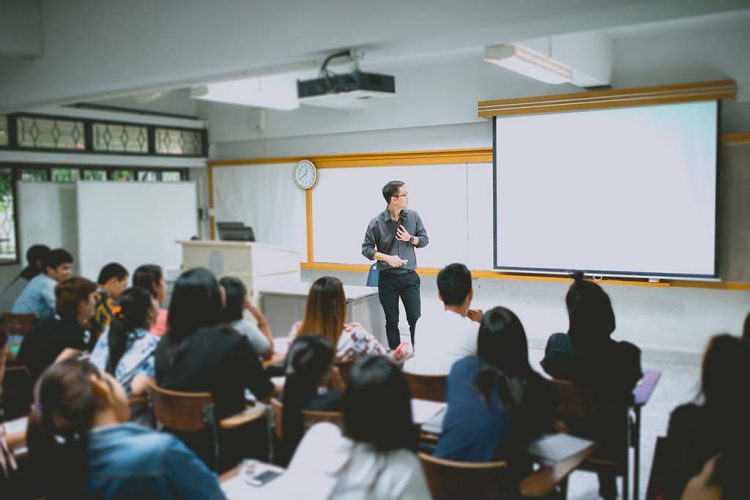Master Primary Science Concepts with Quality Tuition in Singapore
Master Primary Science Concepts with Quality Tuition in Singapore
Blog Article
A Comprehensive Guide to the Different Knowing Techniques in Primary Scientific Research Direction
The exploration of diverse knowing methods in main science instruction offers a possibility for educators to improve pupil interaction and comprehension dramatically. By checking out hands-on understanding strategies, inquiry-based strategies, and collaborative approaches, we can determine effective practices that satisfy various discovering styles. In addition, the integration of technology and separated instruction plays an essential duty in fostering an inclusive environment. The question stays: exactly how can these techniques be effectively applied in the class to maximize their effect? The answer hinges on a better examination of each strategy and its ramifications for mentor scientific research.

Hands-On Knowing Techniques
Hands-on knowing strategies play a pivotal function in main scientific research direction, involving pupils in active exploration and experimentation. These techniques permit students to engage straight with products and sensations, promoting a much deeper understanding of clinical concepts. By utilizing manipulatives, designs, and real-life experiments, educators produce a setting where pupils can observe, hypothesize, and check their concepts.
Such techniques not just boost understanding yet likewise cultivate essential reasoning and problem-solving skills. When pupils join activities like constructing basic makers, planting seeds, or carrying out chemical responses, they are urged to ask inquiries and seek answers with their own monitorings. This experiential strategy helps to demystify complicated scientific principles, making them extra relatable and available.
In addition, hands-on learning advertises cooperation amongst peers, as students often function in groups to perform experiments or share searchings for. This teamwork not only enhances their learning experience but additionally creates crucial social skills. Ultimately, incorporating hands-on strategies in main scientific research guideline fosters a long-lasting love of discovering and curiosity about the natural world, laying a solid foundation for future scholastic pursuits in scientific research and past.
Inquiry-Based Learning
Inquiry-based knowing is an educational technique that urges pupils to ask questions, check out sensations, and build their own understanding of scientific concepts. This technique moves the focus from conventional teacher-led guideline to a much more student-centered experience, where students take the effort in their academic journey. By promoting interest, inquiry-based understanding advertises much deeper interaction with the product, permitting students to check out subjects in a meaningful context.
In technique, this strategy frequently entails hands-on experiments, observations, and vital reasoning tasks that line up closely with the scientific approach. Trainees are motivated to develop hypotheses, design investigations, and assess information, which cultivates vital abilities such as analytic and analytical thinking. The duty of the instructor in this framework is to assist in expedition, guiding pupils with the inquiry process while encouraging independent idea and cooperation.
Moreover, inquiry-based knowing supports a feeling of possession over the understanding procedure, encouraging students to seek understanding actively. This technique not just boosts understanding of scientific ideas however additionally promotes a long-lasting love for learning, outfitting pupils with the skills necessary to browse a significantly intricate world.
Collaborative Understanding Approaches
Joint learning strategies encourage pupils to involve in significant interactions with peers, promoting a shared responsibility for their educational outcomes. In key scientific research instruction, these methods motivate students to interact to explore scientific ideas, resolve problems, and perform experiments (primary science tuition Singapore). By taking part in team activities, trainees can take advantage of diverse perspectives, enabling richer understanding and retention of scientific expertise
One secret aspect of collaborative discovering is the focus on interaction skills. Trainees need to articulate their ideas, listen actively to others, and negotiate ideas, every one of which are important expertises in both scholastic and real-world contexts. This social communication not only boosts their understanding of clinical principles however likewise promotes visit this web-site team effort and conflict resolution abilities.
When students see the worth of their contributions within a team, they are a lot more most likely to take possession of their learning trip. Generally, incorporating collective discovering techniques in key science direction cultivates a vibrant discovering setting that prepares trainees for future academic and social difficulties.
Innovation Assimilation in Science
The integration of innovation in main scientific research direction enhances finding out experiences by providing innovative tools and sources that support various training methodologies, including collective understanding - primary science tuition Singapore. Making use of digital platforms, simulations, and interactive applications permits pupils to involve deeply with scientific concepts, assisting in a much more hands-on technique to understanding
Virtual labs, for example, make it possible for learners to perform experiments safely and effectively, advertising inquiry-based knowing. These devices can imitate real-world scientific situations, allowing pupils to visualize complex processes that would certainly be hard to reproduce in a conventional class setup. Additionally, modern technology promotes interaction and collaboration amongst students, as they can share findings and work with each other on projects through on the internet systems.
In addition, multimedia presentations and academic video clips can enrich lessons by dealing with diverse understanding designs, making abstract ideas more accessible. Data analysis tools additionally equip students to collect and translate clinical information, strengthening essential thinking skills. On the whole, the tactical incorporation of technology in primary scientific research guideline not only improves engagement however also prepares trainees for a technologically innovative culture, furnishing them with vital abilities for future clinical endeavors.
Distinguished Direction Strategies
Separated instruction methods are necessary for resolving the diverse requirements of learners in primary scientific research education and learning. These techniques allow educators to customize their teaching techniques to accommodate varying capabilities, rate of interests, and discovering styles within the class. By employing differentiated guideline, educators can create a comprehensive environment that promotes interaction and improves understanding of scientific ideas.
One efficient approach is to utilize versatile organizing, which allows pupils to work together with peers at comparable ability degrees or with differing point of views. This technique urges peer discovering and advertises important reasoning. Additionally, using choices in projects can encourage trainees, enabling them to select projects that resonate check with their passions while still meeting curricular goals.
In addition, incorporating tiered assignments is another useful method. Deliberately jobs with varying degrees of complexity, teachers can make sure that all pupils are properly tested, no matter their efficiency. Making use of formative evaluations to gauge understanding further enables instructors to change their instructional approaches dynamically, guaranteeing that each learner obtains the support they need.
Eventually, carrying out distinguished guideline methods in primary scientific research education and learning not just enhances pupil learning end results yet additionally cultivates a passion for science, preparing pupils for future academic pursuits.

Conclusion
In summary, effective primary scientific research instruction requires a complex strategy that includes hands-on understanding, inquiry-based approaches, and collective methods. The combination of modern technology and separated direction even more satisfies varied knowing styles, promoting an atmosphere favorable to exploration and critical reasoning. By applying these methods, teachers can improve student interaction and comprehension, ultimately supporting a lifelong interest for scientific research and query. Such comprehensive approaches are important for developing site here notified and interested future scientists.
The exploration of varied learning methods in primary science instruction provides a chance for instructors to improve student interaction and comprehension substantially.Hands-on learning methods play a critical function in key scientific research direction, involving trainees in active expedition and experimentation.Inquiry-based learning is an instructional technique that urges trainees to ask inquiries, check out phenomena, and build their very own understanding of scientific ideas.Collective discovering strategies encourage pupils to engage in significant communications with peers, cultivating a shared duty for their educational results. On the whole, including collaborative learning approaches in primary scientific research direction grows a vibrant discovering atmosphere that prepares students for future scholastic and social obstacles.
Report this page